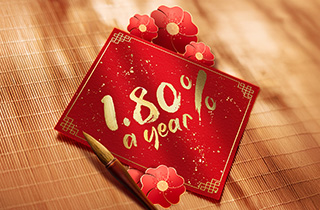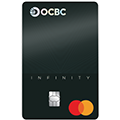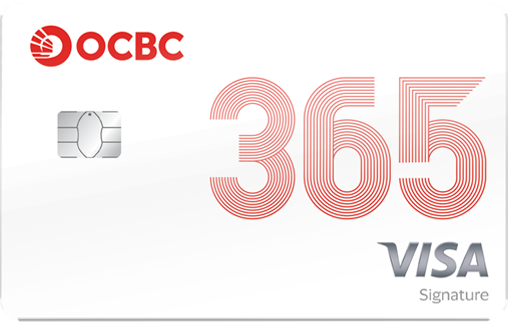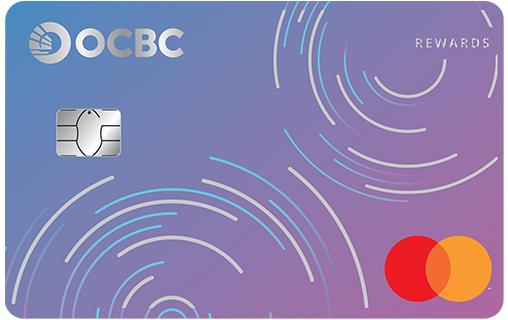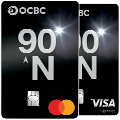Part 1 of 3: Achieve financial wellness with your first three pay cheques
Part 1 of 3: Achieve financial wellness with your first three pay cheques
In this three part series, learn more on how you can achieve financial wellness with your first three pay cheques as a first jobber.
Starting your first full-time job is a thrilling and life-changing milestone. As a first jobber, what will you do with your first pay cheque? Treat yourself to an expensive meal? Get your first Chanel bag or Prada wallet?
Being able to handle your money responsibly, alongside your newfound financial independence, is critical in building a solid foundation for yourself, and most importantly, overcoming downturns in life.
Do you invest more than you save?
In 2022, OCBC surveyed Singaporeans aged 21-29 on key personal finance metrics, including saving, investing, managing debt (Figure 1). While the OCBC Financial Wellness Index survey showed an impressive 86% to have started investing, more effort is needed to encourage saving among this group. Furthermore, an average of only 49.5% have put money aside towards building an emergency fund.
Figure 1: Young Singaporeans aged 21-29 prioritise investing over saving
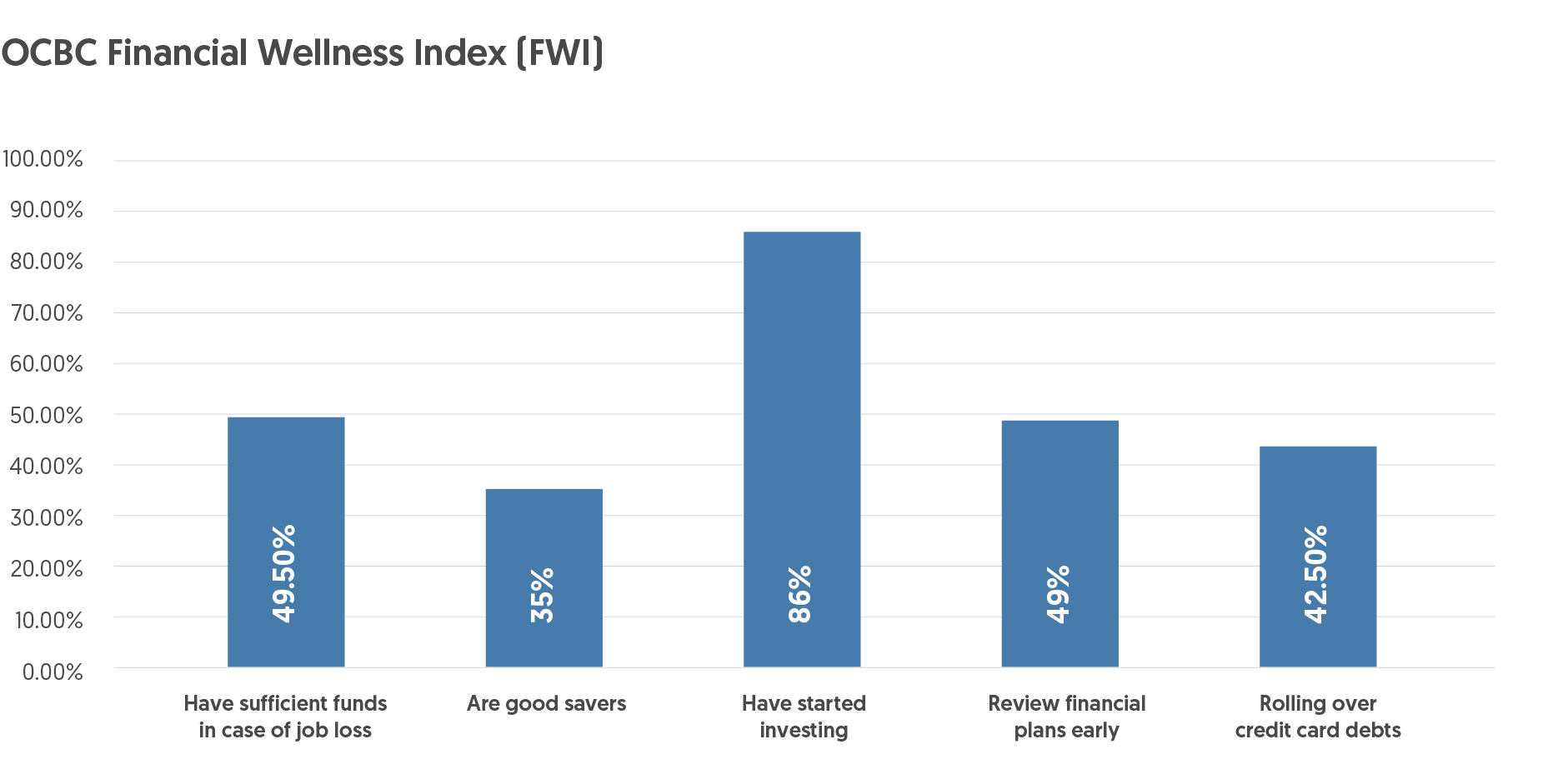
Source: OCBC Financial Wellness Index 2022
These are important gaps to address, as saving is a low-risk way of growing your money. Having sufficient money can provide a peace of mind in those moments when you need to bear the cost of an unforeseen expense. Rather than liquidating your investment (which may lead to losses), you instead pay through your savings.
Emergency funds, as the name suggests, is having sufficient cash set aside for unexpected life events, such as a medical emergency, or the financial burden of a sudden job loss. This is a separate pool of money from your savings. Not having an emergency fund can lead you into debt, as you may resort to interest-bearing personal loans or credit cards to settle the payments.
How can young Singaporeans like yourself set aside enough money for an emergency? In this piece, along with the upcoming two articles, let us discover and explore how we can use our first three pay cheques to make smart financial decisions when the time comes.
First pay cheque: Building an emergency fund
Your first pay cheque is certainly an exciting moment, but it is also an important moment to strike a balance by making smart financial decisions. Simply put, it is perfectly fine to reward yourself with an expensive treat, but the key here is to not think short term but plan for the longer term. Ensure that you budget your purchases in a sustainable way, to avoid diminishing your money at a rate faster than your pay cheque drops into your account.
A quick and easy way you can start is by adopting the golden 50-30-20 rule, which divides your pay cheque as follows:
- 50%: Daily living expenses
- 30%: Entertainment and miscellaneous
- 20%: Personal savings and investment goals
Specifically on savings and investment, you can take a first step in assigning 20% of your first pay cheque towards building of an emergency fund. Ideally, grow this fund to cover at least three to six months of your living expenses, in a bid to weather through unexpected downturns.
Rather than simply saving through a regular savings account, explore the use of a high-yield savings account. The OCBC 360 account is a fantastic choice, allowing you to earn up to 4.65% per annum, on the first $100,000 when you credit1 your salary, save2, and spend3, coupled with the possibility of earning an extra 3.00% when you buy eligible insurance and investment with OCBC Bank.
Kickstart your journey to financial wellness with OCBC. You can also learn more on how you can better utilise your second pay cheque as a first jobber to better manage financial risks.
1 Credit salary of at least S$1,800 through GIRO
2 Increase average daily balance by at least S$500
3 Charge at least S$500 to selected OCBC Credit Cards each month
Open your 360 Account today
or visit us at a branch with these documents.
For Singaporeans and Permanent Residents:
NRIC and an image of your signature
For foreigners:
Passport
Employment Pass (EP) or S-Pass or Student Pass
Initial deposit:
S$1,000
Include any one of the following documents:
Phone bill
Half-yearly CPF statement
Any bank statement
For new customers
Open your account instantly when you apply with Myinfo via Singpass login.
If you do not have Singpass, you can apply online with these documents
For Singaporeans and Permanent Residents:
NRIC and an image of your signature
Additional documents
Include any one of the following documents:
- Phone bill
- Half-yearly CPF statement
- Any bank statement
For OCBC customers
If you have a current or savings account with us, you can apply instantly via Internet Banking with only a few clicks.
Download OCBC Digital
Scan the respective QR code to download the app on the App Store, Google Play or Huawei App Gallery.

Download OCBC Pay Anyone™
Scan the respective QR code to download the app on the App Store, Google Play or Huawei App Gallery.
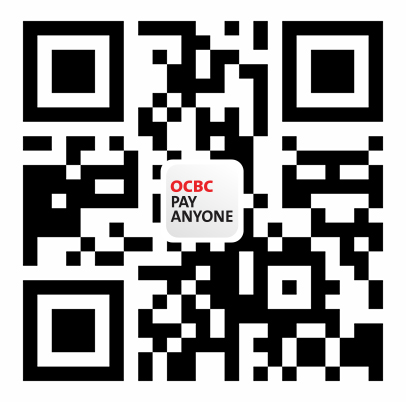
General Disclaimer
This advertisement has not been reviewed by the Monetary Authority of Singapore.
- Any opinions or views of third parties expressed in this document are those of the third parties identified, and do not represent views of Oversea-Chinese Banking Corporation Limited (“OCBC Bank”, “us”, “we” or “our”).
- This information is intended for general circulation and / or discussion purposes only. It does not consider the specific investment objectives, financial situation or needs of any particular person.
- Before you make an investment, please seek advice from your Relationship Manager regarding the suitability of any investment product taking into account your specific investment objectives, financial situation or particular needs.
- If you choose not to do so, you should consider if the investment product is suitable for you, and conduct your own assessments and due diligence on the investment product.
- We are not making an offer, solicit to buy or sell or subscribe for any security or financial instrument, enter into any transaction or participate in any trading or investment strategy with you through this document. Nothing in this document shall be deemed as an offer or solicitation to buy or sell or subscribe for any security or financial instrument or to enter into any transaction or to participate in any particular trading or investment strategy.
- No representation or warranty whatsoever in respect of any information provided herein is given by OCBC Bank and it should not be relied upon as such. OCBC Bank does not undertake an obligation to update the information or to correct any inaccuracy that may become apparent at a later time. All information presented is subject to change without notice.
- OCBC Bank shall not be responsible or liable for any loss or damage whatsoever arising directly or indirectly howsoever in connection with or as a result of any person acting on any information provided herein.
- Investments are subject to investment risks, including the possible loss of the principal amount invested. The information provided herein may contain projections or other forward-looking statements regarding future events or future performance of countries, assets, markets or companies. Actual events or results may differ materially. Past performance figures, predictions or projections are not necessarily indicative of future or likely performance.
- Any reference to a company, financial product or asset class is used for illustrative purposes and does not represent our recommendation in any way.
- The information in and contents of this document may not be reproduced or disseminated in whole or in part without the Bank’s written consent.
- OCBC Bank, its related companies, and their respective directors and/or employees (collectively “Related Persons”) may, or might have in the future, interests in the investment products or the issuers mentioned herein. Such interests include effecting transactions in such investment products, and providing broking, investment banking and other financial services to such issuers. OCBC Bank and its Related Persons may also be related to, and receive fees from, providers of such investment products.
- You must read the Offer Document/Indicative Term Sheet/Product Highlight Sheet before deciding whether or not to purchase the investment product, copies of which may be obtained from your relationship manager.
- Any hyperlink to any third party article, or other website or webpage (including any websites or webpages owned, operated and maintained by third parties) is for informational purposes only and for your convenience only and is not an endorsement or verification of any such article, website or webpage by OCBC Bank and should only be accessed at your own risk. OCBC Bank does not review the contents of any such articles, website or webpage, and shall not be liable to any person for the same.
Deposit Insurance Scheme
Singapore dollar deposits of non-bank depositors and monies and deposits denominated in Singapore dollars under the Supplementary Retirement Scheme are insured by the Singapore Deposit Insurance Corporation, for up to S$75,000 in aggregate per depositor per Scheme member by law. Monies and deposits denominated in Singapore dollars under the CPF Investment Scheme and CPF Retirement Sum Scheme are aggregated and separately insured up to S$75,000 for each depositor per Scheme member. Foreign currency deposits, dual currency investments, structured deposits and other investment products are not insured.
Policy Owners' Protection Scheme
This plan is protected under the Policy Owner's Protection Scheme which is administered by the Singapore Deposit Insurance Corporation (SDIC). Coverage for your policy is automatic and no further action is required from you. For more information on the types of benefits that are covered under the scheme as well as the limits of coverage, where applicable, please contact us or visit the Life Insurance Association (LIA) or SDIC websites (www.lia.org.sg or www.sdic.org.sg).
Important notice for Insurance
The insurance plans are provided by The Great Eastern Life Assurance Company Limited, a wholly-owned subsidiary of Great Eastern Holdings Limited and a member of the OCBC Group and Transamerica Life Bermuda Ltd. The insurance plans are not bank deposits and OCBC Bank does not guarantee or have any obligations in connection with it.
You may want to seek advice from a financial adviser before committing to buy the product. If you choose to not seek advice from a financial adviser, you should consider if the product is suitable for you.
Buying a life insurance policy is a long-term commitment. An early termination of the policy usually involves high cost and the surrender value payable may be less than the total premiums paid.
This document is for general information only. It is not a contract of insurance or an offer to buy an insurance product or service. It is also not meant to provide any insurance or financial advice. The specific terms and conditions of the plan are set out in the policy documents. If you are interested in the insurance policy, you should read the product summary and benefit illustration (available from us) before deciding whether to buy this product.
We do not guarantee, represent or warrant that any of the information provided in this document is accurate and you should not rely on it as such. We do not undertake to update the information or to correct any inaccuracies. All information may change without notice. We will not be liable for any loss or damage arising directly or indirectly in connection with or as a result of you acting on the information in this document. This document may be translated into the Chinese language. If there is any difference between the English and Chinese versions, the English version will prevail.

